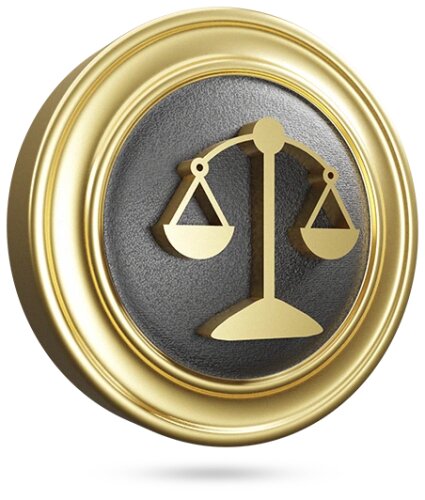Best Bankruptcy & Debt Lawyers in Brazil
Share your needs with us, get contacted by law firms.
Free. Takes 2 min.
Or refine your search by selecting a city:
List of the best lawyers in Brazil
About Bankruptcy & Debt Law in Brazil
Bankruptcy and debt laws in Brazil are primarily governed by the Bankruptcy Law (Lei de Falências), enacted as Law No. 11.101/2005. This legal framework addresses the processes for judicial recovery (recuperação judicial), extrajudicial recovery (recuperação extrajudicial), and bankruptcy (falência) of business entities. The aim is to provide methods for restructuring companies facing financial distress or liquidating assets in an orderly manner to pay creditors, thus maintaining economic stability and creditor rights.
Why You May Need a Lawyer
Engaging a lawyer with expertise in bankruptcy and debt matters can be crucial in various situations, including:
- Filing for bankruptcy due to overwhelming debts
- Handling complex creditor negotiations to prevent insolvency
- Being involved in the restructuring of business finances
- Dealing with debt collection lawsuits or disputes
- Advising on compliance with Brazilian bankruptcy procedures
- Reviewing eligibility for judicial or extrajudicial recovery
A specialized lawyer can guide you through the complex legal landscape, protect your interests, and help achieve the best possible outcome, whether you are a debtor or a creditor.
Local Laws Overview
The cornerstone of Brazil’s bankruptcy law is the Bankruptcy Law (Law No. 11.101/2005), which outlines procedures for addressing financial distress. Key aspects include:
- Judicial Recovery: Allows companies in financial distress to restructure operations and negotiate with creditors under court supervision.
- Extrajudicial Recovery: Provides an option for debt restructuring outside of court, albeit with court approval of settlement agreements.
- Bankruptcy (Falência): Involves winding up and liquidating the assets of a business unable to service its debts.
- Creditor Rights: Creditors are ranked according to priority, such as labor claims and secured credits.
- Plan Approval: Recovery plans must be approved by creditors through specialized assemblies.
- Automatic Stay: Initiating a judicial recovery triggers a stay period, halting most creditor enforcement actions.
Understanding these provisions is vital for businesses and creditors navigating the Brazilian economic environment.
Frequently Asked Questions
What is the eligibility criterion for filing for judicial recovery in Brazil?
To file for judicial recovery, a company must have been operating for at least two years and cannot have been declared bankrupt in the past five years.
Can individuals file for bankruptcy in Brazil?
No, individual bankruptcy is not covered under current Brazilian bankruptcy law, which applies specifically to businesses. Individuals typically seek debt negotiation or other financial management solutions.
How does the creditor arrangement work in a bankruptcy case?
In bankruptcy cases, creditors are ranked according to priority, with labor creditors and secured creditors generally having higher priority than unsecured creditors.
What is the time frame for completing a judicial recovery?
A judicial recovery plan must be presented within 60 days of filing, and its implementation can vary depending on complexity, often taking several years to complete.
What role does the automatic stay play in bankruptcy proceedings?
The automatic stay freezes most creditor claims, allowing the debtor to reorganize without facing lawsuits or asset seizures for an established period.
Are there alternatives to bankruptcy for struggling businesses?
Yes, companies can explore extrajudicial recovery, where out-of-court negotiations result in a settlement agreement with creditors, potentially avoiding formal bankruptcy.
What impact does filing for bankruptcy have on the management team?
Typically, management remains in control during judicial recovery unless mismanagement is evident, at which point a judicial administrator may be appointed.
Are international creditors treated differently in Brazilian bankruptcy cases?
Foreign creditors have equivalent rights in Brazilian proceedings, although currency conversion and legal representation considerations may arise.
What happens to contracts during a company's judicial recovery?
Essential contracts are generally maintained to allow the company to continue operations, but critical suppliers and creditors often need to agree to new terms.
What is the role of creditor meetings in judicial recovery?
Creditor meetings are pivotal for approving or modifying the debtor's recovery plan, ensuring creditor participation in shaping the restructuring process.
Additional Resources
For additional support and guidance, consider reaching out to:
- Brazilian Bar Association (Ordem dos Advogados do Brasil): Resources for locating specialized legal professionals.
- Receita Federal: Information on tax obligations related to bankruptcy.
- National Council of Justice (Conselho Nacional de Justiça): Guidelines on legal proceedings and court processes.
- Local Chambers of Commerce: Often provide workshops and advice for businesses in financial distress.
Next Steps
If you require legal assistance in bankruptcy and debt matters, here are the steps you should consider:
- Consult with a specialized lawyer for a comprehensive assessment of your situation.
- Gather and organize all relevant financial and business documentation.
- Discuss potential legal strategies and their implications.
- Stay informed about your legal rights and responsibilities.
- Evaluate options for out-of-court settlements to possibly avoid formal bankruptcy procedures.
Taking informed, timely action is essential for navigating the complexities of bankruptcy and debt management in Brazil effectively.
Lawzana helps you find the best lawyers and law firms in Brazil through a curated and pre-screened list of qualified legal professionals. Our platform offers rankings and detailed profiles of attorneys and law firms, allowing you to compare based on practice areas, including Bankruptcy & Debt, experience, and client feedback.
Each profile includes a description of the firm's areas of practice, client reviews, team members and partners, year of establishment, spoken languages, office locations, contact information, social media presence, and any published articles or resources. Most firms on our platform speak English and are experienced in both local and international legal matters.
Get a quote from top-rated law firms in Brazil — quickly, securely, and without unnecessary hassle.
Disclaimer:
The information provided on this page is for general informational purposes only and does not constitute legal advice. While we strive to ensure the accuracy and relevance of the content, legal information may change over time, and interpretations of the law can vary. You should always consult with a qualified legal professional for advice specific to your situation.
We disclaim all liability for actions taken or not taken based on the content of this page. If you believe any information is incorrect or outdated, please contact us, and we will review and update it where appropriate.
Browse bankruptcy & debt law firms by service in Brazil
Brazil Attorneys in related practice areas.
Browse bankruptcy & debt law firms by city in Brazil
Refine your search by selecting a city.













